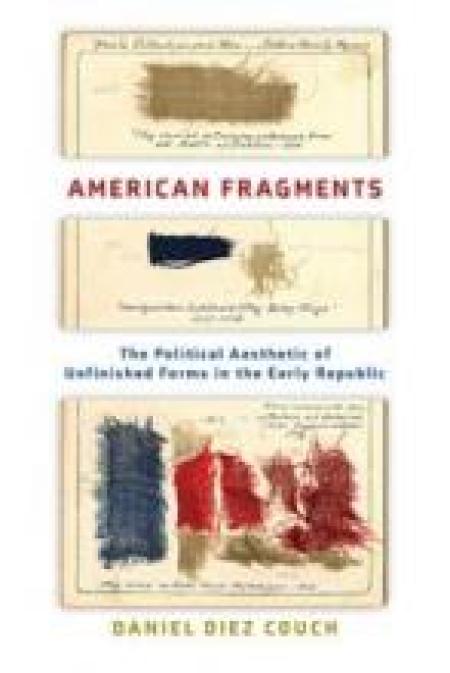
American Antiquarian Society
185 Salisbury Street
Worcester, MA 01609
United States
In the years between the independence of the colonies from Britain and the start of the Jacksonian age, American readers consumed an enormous number of literary texts called "fragments." American Fragments recovers this archive of the romantic period to raise a set of pressing questions about the relationship between aesthetic and national realities: What kind of artistic creation was a fragment?, And how and why did deliberately unfinished writing emerge alongside a country that was itself still unfinished?
Through discussions of eighteenth-century transatlantic aesthetics, the Revolutionary War, seduction novels, religious culture, and the construction of authorship, Daniel Diez Couch argues that the literary fragment was used as a means of representing individuals who did not fit neatly into the social fabric of the nation: beggars, prostitutes, veterans, and other ostracized figures. These individuals did not have a secure place in designs for the country's future, yet writers wielded the artistic form of the fragment as an apparatus for surveying their disputed positionality. Time and again, fragments asked what kind of identity marginalized individuals had, and how fictionalized versions of their life stories influenced the sociopolitical circumstances of the emergent nation. In their most progressive moments, the writers of fragments depicted their subjects as being "in process," opting for a fluid version of the self instead of the bounded and coherent one typically hailed as the liberal individual.
Traversing aesthetics, political philosophy, material culture, and history, American Fragments gives new life to a literary form that at once played a significant role in the print ecology of the early republic, and that endures in the works of modernist and postmodernist writers and artists.

Daniel Diez Couch is Associate Professor of English at the US Air Force Academy, where he teaches eighteenth- and nineteenth-century American literature. His first book, American Fragments: The Political Aesthetic of Unfinished Forms in the Early Republic, was just released with University of Pennsylvania Press. Portions of American Fragments appeared in Early American Literature and The Eighteenth Century: Theory and Interpretation, and his other work has appeared in journals such as Studies in American Fiction, Early American Studies, Arizona Quarterly, and Leviathan: A Journal of Melville Studies. He is currently at work on a project that examines the history of literary characters in American literature in the late eighteenth and early nineteenth centuries.